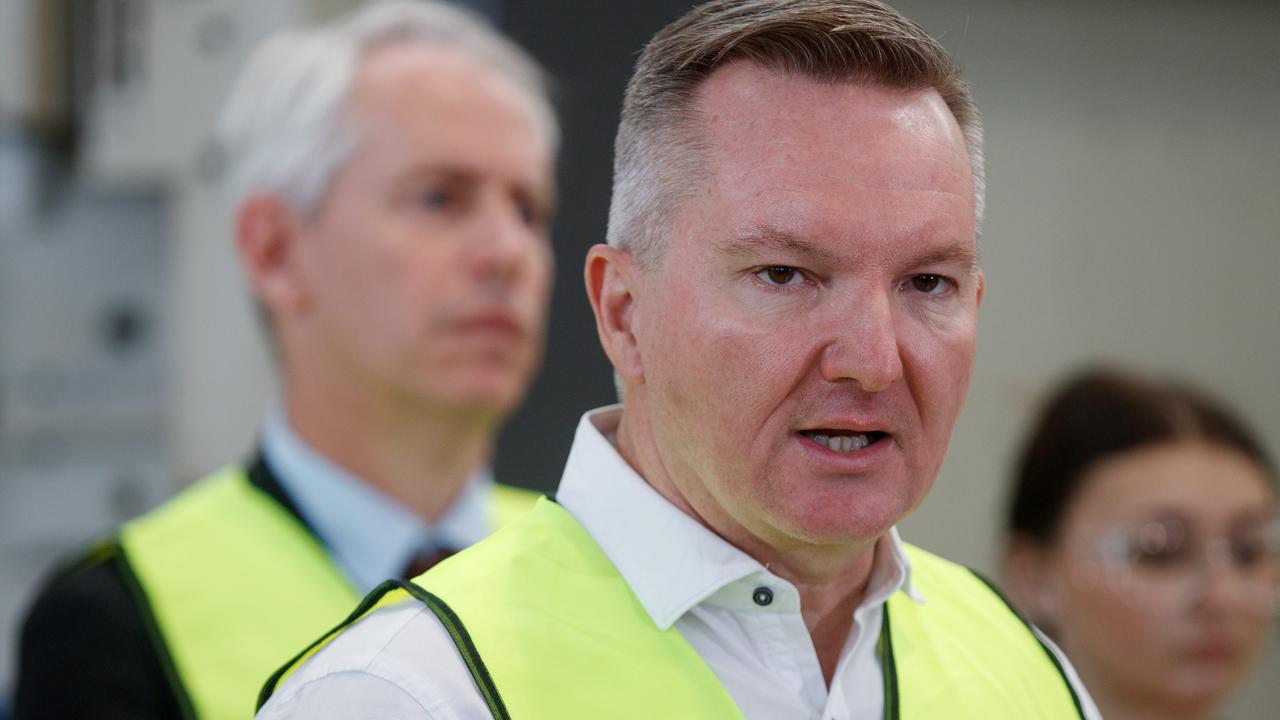EV owners to benefit from ‘game changer’ vehicle to grid technology
Tech that could end blackouts for Australian families is on the way for folks who own the right hardware.
Australian EV owners will be able to power their homes using their car and sell energy back to the grid before the end of the year.
A regulatory breakthrough allowing vehicle to grid charging will mean that EV owners who have the right car and hardware could power their home during a blackout, absorb excess solar energy to pump back into the house during periods of peak demand, and sell energy back to power providers.

MORE:Elon Musk’s $22b win after Trump victory
Speaking at the Sydney International EV AutoShow, Chris Bowen, Minister for Climate Change and Energy, said the Federal Government aimed to have bi-directional charging “a reality by Christmas this year”.
“This is a good step forward,” he said.
“That means that they now have skills and opportunities available to them to put themselves in charge of when they charge their car, and when they use the energy in their car to charge their grid or their house.

MORE:Riding in the self-driving taxi
“We’ve been working on this for a long time in partnership with states and territories.
“Now the process is that car manufacturers and charging manufacturers can register their produces with the clean energy council who will be our regulator for this, and if it complies with the Australian standard, they’ll be able to get that registered and underway.
“By Christmas, we hope, there will be products registered and people can undertake that journey.”
Bi-directional charging has been technically possible for years, thanks to vehicles such as the Nissan Leaf and Mitsubishi Outlander.

But regulatory red tape has prevented owners from taking advantage of the tech.
Now, Standards Australia has approved regulations for vehicle to grid charging to enable people with an electric vehicle to charge their home and to charge the energy grid.
Following a limited trial in South Australia, Mitsubishi Australia chief executive Shaun Westcott said in 2023 that “the car starts paying for itself” by functioning as a battery for the home.
Nissan spokesman Hugues Desmarchelier said in October that the tech is “a potential game-changer for how we view the car”.

“Not just as a means of getting from A to B, but as a mobile energy storage unit, capable of saving people money, supporting the transition of our energy systems away from fossil fuels and bringing us closer to a carbon-free future”.
Mr Bowen said car makers and suppliers of charging hardware should rush to gain approval for individual products.
“I really am encouraging manufacturers, both of vehicles and of charging infrastructure, to get their act together and get their applications in to the clean energy council … as quickly as possible so we can make it a reality,” he said.
“It’s not going to happen overnight for everyone.
“Not every manufacturer is in the same place, but it’s now going to be enabled in our system.
“It’s a really important step forward.”






